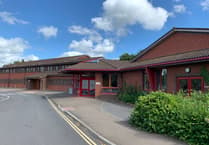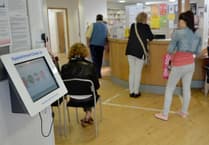UP to a quarter of Devon’s buses run late, making punctuality the “biggest challenge” for the county’s bus provider Stagecoach.
Simon Ford, head of commercial at Stagecoach South West, told Devon County Council’s cabinet meeting that around 75 to 80 per cent of its buses were on time, meaning up to a quarter fail to keep to schedule.
Stagecoach runs around 80 per cent of Devon’s buses.
Mr Ford was speaking as Devon cabinet members were discussing a report aimed at improving the timeliness of buses in Exeter, Newton Abbot and Barnstaple.
The meeting discussed proposals for the three areas, which will include measures to improve bus priority, such as better traffic light efficiency and monitoring, and the coordination of signalled crossings and junctions.
Messaging signs on the eastern and central corridors in Exeter would provide more information to drivers to help improve traffic flow, while the bus lane at car dealership Livery Dole would be extended, including by increasing bus lane operation times.
It is expected that the measures in Exeter could save three minutes and 20 seconds per bus on the eastern corridor and roughly four minutes on the central one.
The Newton Abbot scheme will focus on a route through the town centre, from Penn Inn roundabout on the A381, along Torquay Road, to Halcyon Road/ Kingsteignton Road towards Balls Corner roundabout.
The corridor services 28 different bus services, totalling over 200 buses a day on Kingsteignton Road and approximately 40 buses a day across Torquay Road.
Proposals include changes at existing signalled junctions and crossings to improve bus priority, including measures that would extend the green traffic signal when a bus is detected. This would reduce the waiting time of a queuing bus.
The scheme in Barnstaple would involve an existing bus lane from Chaddiford Lane towards Barnstaple town centre, along the A361 Braunton Road. It is hoped it will speed up bus journeys by removing the requirement for buses to stop at two sets of traffic lights, as well as improving crossings for people walking and cycling.
Mr Ford welcomed the measures which could improve journeys for “hundreds of thousands of passengers”.
“I fully support the proposals as they are key to allowing us to be reliable and punctual, the benefits of which will mean we grow passenger numbers and improve journey times,” he said.
Cllr Caroline Leaver (Liberal Democrat, Barnstaple South) said that helping buses to be more reliable was “a good thing”.
“I understand that significantly fewer people are using buses in Devon than pre-Covid and these measures are part of efforts to bring them back and must be welcomed,” she said.
However, she noted that more people had opposed the Barnstaple plan in the formal consultation than supported it. The report said just over half of respondents “strongly oppose the proposals” while a quarter “strongly agree”.
Cllr Carol Whitton (Labour, St Davids & Haven Banks) welcomed the initiatives, especially for the “highly congested city” of Exeter.
“Anything that helps deliver more punctual and reliable services is very much seen as a benefit,” she said.
She added this would “not solve the county’s problems with bus coverage” and raised concerns about the loss of a bus stop at Livery Dole and the loss of car parking spaces for some residents in Heavitree Road.
Funding for the schemes – set to cost a combined £2.8 million – has come from Devon’s £14 million grant from the Department for Transport (DfT) in 2022.
The cabinet approved the plans, but each will now have a traffic regulation order published, and funding for the schemes will also need to be confirmed.
The council noted that the Barnstaple scheme is now over budget, and that it is asking permission from the DfT to use government funding that might have been used for other projects on the one in the North Devon town. If this is not possible, the county council will pay for the overspend from its own coffers.
It was also acknowledged that “substantial objection” to any of the schemes could see them re-sent to each area’s highways and traffic orders committees.
By Bradley Gerrard





Comments
This article has no comments yet. Be the first to leave a comment.